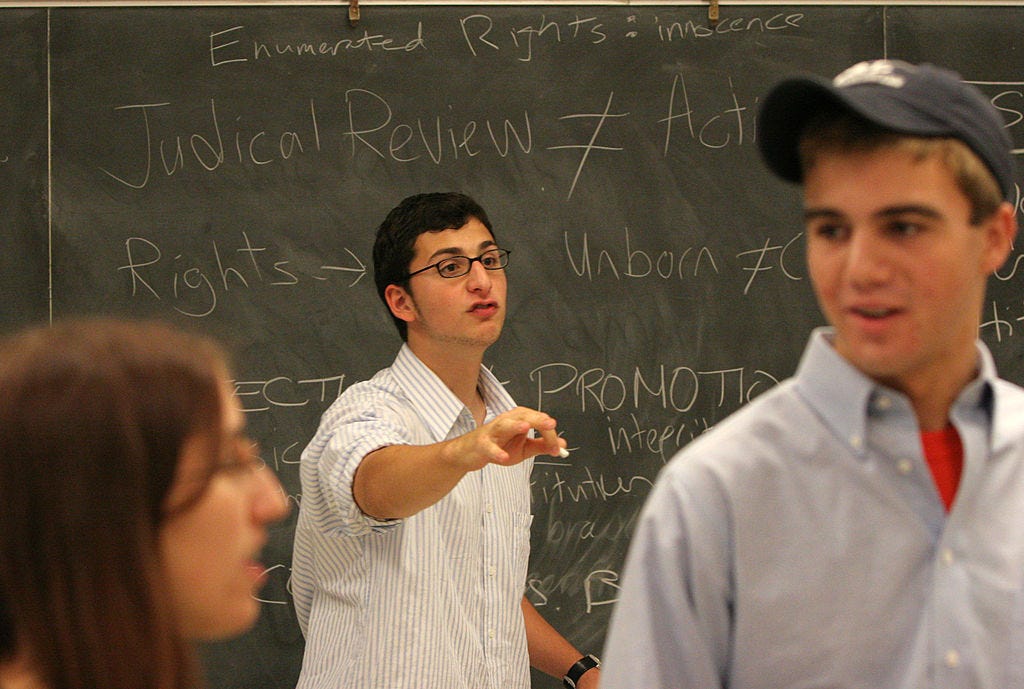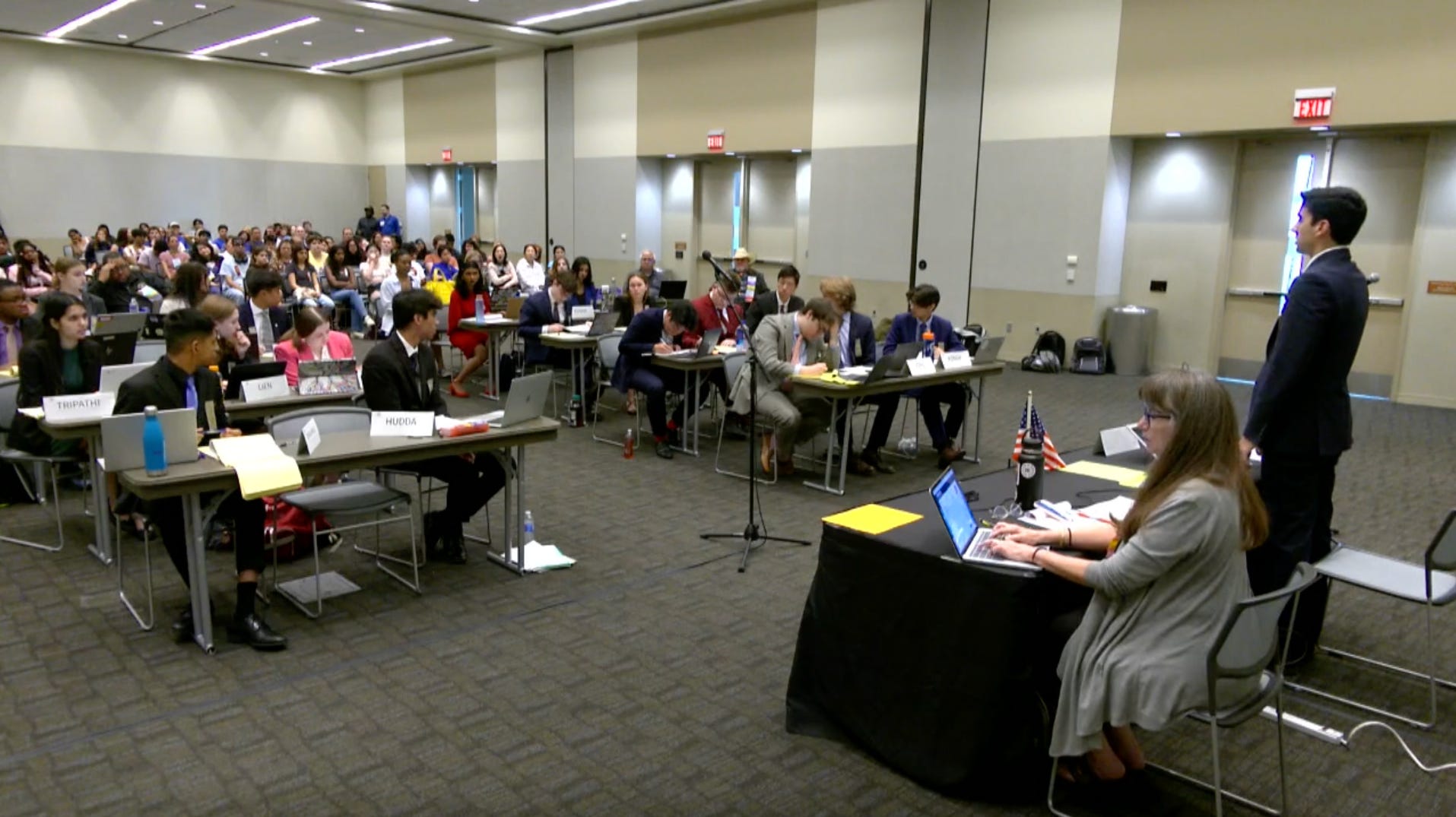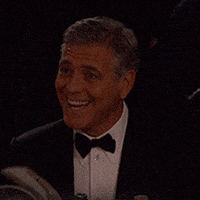PART 1
First, some background. Imagine a high school sophomore on the debate team. She’s been given her topic about a month in advance, but she won’t know who her judge is until hours before her debate round. During that time squeeze—perhaps she’ll pace the halls as I did at the 2012 national tournament in Indianapolis—she’ll scroll on her phone to look up her judge’s name on Tabroom, a public database maintained by the NSDA. That’s where judges post “paradigms,” which explain what they look for during a debate. If a judge prefers competitors not “spread”—speak a mile a minute—debaters will moderate their pace. If a judge emphasizes “impacts”—the reasons why an argument matters—debaters adjust accordingly.
But let’s say when the high school sophomore clicks Tabroom she sees that her judge is Lila Lavender, the 2019 national debate champion, whose paradigm reads, “Before anything else, including being a debate judge, I am a Marxist-Leninist-Maoist. . . . I cannot check the revolutionary proletarian science at the door when I’m judging. . . . I will no longer evaluate and thus never vote for rightest capitalist-imperialist positions/arguments. . . . Examples of arguments of this nature are as follows: fascism good, capitalism good, imperialist war good, neoliberalism good, defenses of US or otherwise bourgeois nationalism, Zionism or normalizing Israel, colonialism good, US white fascist policing good, etc.”
How does that sophomore feel as she walks into her debate round? How will knowing that information about the judge change the way she makes her case?
Traditionally, high school students would have encountered a judge like former West Point debater Henry Smith, whose paradigm asks students to “focus on clarity over speed” and reminds them that “every argument should explain exactly how [they] win the debate.”
In the past few years, however, judges with paradigms tainted by politics and ideology are becoming common. Debate judge Shubham Gupta’s paradigm reads, “If you are discussing immigrants in a round and describe the person as ‘illegal,’ I will immediately stop the round, give you the loss with low speaks”—low speaker points—“give you a stern lecture, and then talk to your coach. . . . I will not have you making the debate space unsafe.”
Debate Judge Kriti Sharma concurs: under her list of “Things That Will Cause You To Automatically Lose,” number three is “Referring to immigrants as ‘illegal.’ ”
Should a high school student automatically lose and be publicly humiliated for using a term that’s not only ubiquitous in media and politics, but accurate?
Once students have been exposed to enough of these partisan paradigms, they internalize that point of view and adjust their arguments going forward. That’s why you rarely see students present arguments in favor of capitalism, defending Israel, or challenging affirmative action. Most students choose not to fight this coercion. They see it as a necessary evil that’s required to win debates and secure the accolades, scholarships, and college acceptance letters that can come with winning.
On paper, the NSDA rejects what Lavender, Gupta, and Sharma are doing. Its rules state, “Judges should decide the round as it is debated, not based on their personal beliefs.” Founded in 1925, the NSDA chooses the debate topics and facilitates hundreds of tournaments, including the annual national tournament, starting June 11 in Arizona, where six thousand students from across the country will compete. (The NSDA did not respond to emails and phone calls asking for comment before this story went to press.)
A random scroll through Tabroom reveals there are still sane judges out there. “I have been a trial lawyer for 25 years,” reads Amanda Marshall’s paradigm. “I like clash, quality evidence from qualified sources, comparative analysis, and crystallization in last rebuttals. Don’t take anything for granted. You have to explain your arguments, why your evidence is compelling, and how the arguments weigh in the round. It’s your job to persuade me and communicate your positions in a way that is effective—that is how you will win my ballot. I don’t like whining, personal attacks, dominance, aggression, and disrespect. I do appreciate professionalism, kindness, and integrity.”
Or this paradigm, from debate judge Steven Macartney: “My favorite debates are rigorous, but friendly. I actually appreciate when one debater accepts one of their opponent’s arguments as valid, but still persuades me that they should win the round. I will make my decision based on who is the most persuasive, but persuading me will be done by showing with evidence that one side upholds their value and criterion better than the other side. In order to do this, a debater must speak slowly and clearly enough for me to hear and understand the arguments.”
Unfortunately for students and their parents, there are countless judges at tournaments across the country whose biased paradigms disqualify them from being impartial adjudicators of debate. From “I will drop America First framing in a heartbeat,” to “I will listen to conservative-leaning arguments, but be careful,” judges are making it clear they are not only tilting the debate in a left-wing direction, they will also penalize students who don’t adhere to their ideology.
In the past year, Lindsey Shrodek has judged over 120 students at tournaments in Massachusetts, New York, and New Jersey. The NSDA has certified her with its “Cultural Competency” badge, which indicates she has completed a brief online training module in evaluating students with consideration for their identity and cultural background. Until last month, Shrodek’s paradigmtold debaters, “f you are white, don’t run arguments with impacts that primarily affect POC [people of color]. These arguments should belong to the communities they affect.” Recently, her paradigm was updated to eliminate that quote. When I asked Shrodek why, she told me she didn’t “eliminate the idea itself,” and that she “doesn’t know if it’s exactly my place to say what arguments will or won’t make marginalized communities feel unsafe in the debate space.”
I disagree. In debate, “unsafe” conversations should be encouraged, even celebrated. How better for young people from all backgrounds to bridge the divides that tear us apart, and to discover what unites them? The debate I knew taught me to think and learn and care about issues that affected people different from me.
We’ve come a long way from the 2004 Democratic National Convention, when an obscure state senator from Illinois named Barack Obama said, “If there’s a child on the south side of Chicago who can’t read, that matters to me, even if it’s not my child. . . . If there’s an Arab American family being rounded up without the benefit of an attorney or due process, that threatens my civil liberties. It’s that fundamental belief—I am my brother’s keeper, I am my sister’s keeper—that makes this country work. It’s what allows us to pursue our individual dreams, yet still come together as a single American family.”
Twenty years ago, the NSDA I knew encouraged me to think and speak about how policies and issues impacted different communities. Not anymore.
One judge gives people of color priority in her debates. In general, students voluntarily, and mutually, disclose their evidence to their opponents before the debate round, as both teams benefit from spending more time with the other team’s evidence. But X Braithwaite, who’s judged 169 debate rounds with 340 students, has her own disclosure policy in her paradigm, which uses a racial epithet: “1. N****s don’t have to disclose to you. 2. Disclose to n****s.”
This is racial discrimination, of course: If you’re black, you get to keep your evidence to yourself and have a competitive advantage. If you’re not black, you must disclose all of your evidence to your opponent and accept a competitive disadvantage. Students who win under this rubric may view their victory as flawed, as if their win isn’t a reflection of their hard work. Those who lose may view this as the singular reason for their loss, even if it wasn’t. Students suffer and so do the sportsmanship and camaraderie that high school debate was once known for.
First, some background. Imagine a high school sophomore on the debate team. She’s been given her topic about a month in advance, but she won’t know who her judge is until hours before her debate round. During that time squeeze—perhaps she’ll pace the halls as I did at the 2012 national tournament in Indianapolis—she’ll scroll on her phone to look up her judge’s name on Tabroom, a public database maintained by the NSDA. That’s where judges post “paradigms,” which explain what they look for during a debate. If a judge prefers competitors not “spread”—speak a mile a minute—debaters will moderate their pace. If a judge emphasizes “impacts”—the reasons why an argument matters—debaters adjust accordingly.
But let’s say when the high school sophomore clicks Tabroom she sees that her judge is Lila Lavender, the 2019 national debate champion, whose paradigm reads, “Before anything else, including being a debate judge, I am a Marxist-Leninist-Maoist. . . . I cannot check the revolutionary proletarian science at the door when I’m judging. . . . I will no longer evaluate and thus never vote for rightest capitalist-imperialist positions/arguments. . . . Examples of arguments of this nature are as follows: fascism good, capitalism good, imperialist war good, neoliberalism good, defenses of US or otherwise bourgeois nationalism, Zionism or normalizing Israel, colonialism good, US white fascist policing good, etc.”
How does that sophomore feel as she walks into her debate round? How will knowing that information about the judge change the way she makes her case?
Traditionally, high school students would have encountered a judge like former West Point debater Henry Smith, whose paradigm asks students to “focus on clarity over speed” and reminds them that “every argument should explain exactly how [they] win the debate.”
In the past few years, however, judges with paradigms tainted by politics and ideology are becoming common. Debate judge Shubham Gupta’s paradigm reads, “If you are discussing immigrants in a round and describe the person as ‘illegal,’ I will immediately stop the round, give you the loss with low speaks”—low speaker points—“give you a stern lecture, and then talk to your coach. . . . I will not have you making the debate space unsafe.”
Debate Judge Kriti Sharma concurs: under her list of “Things That Will Cause You To Automatically Lose,” number three is “Referring to immigrants as ‘illegal.’ ”
Should a high school student automatically lose and be publicly humiliated for using a term that’s not only ubiquitous in media and politics, but accurate?
Once students have been exposed to enough of these partisan paradigms, they internalize that point of view and adjust their arguments going forward. That’s why you rarely see students present arguments in favor of capitalism, defending Israel, or challenging affirmative action. Most students choose not to fight this coercion. They see it as a necessary evil that’s required to win debates and secure the accolades, scholarships, and college acceptance letters that can come with winning.
On paper, the NSDA rejects what Lavender, Gupta, and Sharma are doing. Its rules state, “Judges should decide the round as it is debated, not based on their personal beliefs.” Founded in 1925, the NSDA chooses the debate topics and facilitates hundreds of tournaments, including the annual national tournament, starting June 11 in Arizona, where six thousand students from across the country will compete. (The NSDA did not respond to emails and phone calls asking for comment before this story went to press.)
A random scroll through Tabroom reveals there are still sane judges out there. “I have been a trial lawyer for 25 years,” reads Amanda Marshall’s paradigm. “I like clash, quality evidence from qualified sources, comparative analysis, and crystallization in last rebuttals. Don’t take anything for granted. You have to explain your arguments, why your evidence is compelling, and how the arguments weigh in the round. It’s your job to persuade me and communicate your positions in a way that is effective—that is how you will win my ballot. I don’t like whining, personal attacks, dominance, aggression, and disrespect. I do appreciate professionalism, kindness, and integrity.”
Or this paradigm, from debate judge Steven Macartney: “My favorite debates are rigorous, but friendly. I actually appreciate when one debater accepts one of their opponent’s arguments as valid, but still persuades me that they should win the round. I will make my decision based on who is the most persuasive, but persuading me will be done by showing with evidence that one side upholds their value and criterion better than the other side. In order to do this, a debater must speak slowly and clearly enough for me to hear and understand the arguments.”
Unfortunately for students and their parents, there are countless judges at tournaments across the country whose biased paradigms disqualify them from being impartial adjudicators of debate. From “I will drop America First framing in a heartbeat,” to “I will listen to conservative-leaning arguments, but be careful,” judges are making it clear they are not only tilting the debate in a left-wing direction, they will also penalize students who don’t adhere to their ideology.
In the past year, Lindsey Shrodek has judged over 120 students at tournaments in Massachusetts, New York, and New Jersey. The NSDA has certified her with its “Cultural Competency” badge, which indicates she has completed a brief online training module in evaluating students with consideration for their identity and cultural background. Until last month, Shrodek’s paradigmtold debaters, “f you are white, don’t run arguments with impacts that primarily affect POC [people of color]. These arguments should belong to the communities they affect.” Recently, her paradigm was updated to eliminate that quote. When I asked Shrodek why, she told me she didn’t “eliminate the idea itself,” and that she “doesn’t know if it’s exactly my place to say what arguments will or won’t make marginalized communities feel unsafe in the debate space.”
I disagree. In debate, “unsafe” conversations should be encouraged, even celebrated. How better for young people from all backgrounds to bridge the divides that tear us apart, and to discover what unites them? The debate I knew taught me to think and learn and care about issues that affected people different from me.
We’ve come a long way from the 2004 Democratic National Convention, when an obscure state senator from Illinois named Barack Obama said, “If there’s a child on the south side of Chicago who can’t read, that matters to me, even if it’s not my child. . . . If there’s an Arab American family being rounded up without the benefit of an attorney or due process, that threatens my civil liberties. It’s that fundamental belief—I am my brother’s keeper, I am my sister’s keeper—that makes this country work. It’s what allows us to pursue our individual dreams, yet still come together as a single American family.”
Twenty years ago, the NSDA I knew encouraged me to think and speak about how policies and issues impacted different communities. Not anymore.
One judge gives people of color priority in her debates. In general, students voluntarily, and mutually, disclose their evidence to their opponents before the debate round, as both teams benefit from spending more time with the other team’s evidence. But X Braithwaite, who’s judged 169 debate rounds with 340 students, has her own disclosure policy in her paradigm, which uses a racial epithet: “1. N****s don’t have to disclose to you. 2. Disclose to n****s.”
This is racial discrimination, of course: If you’re black, you get to keep your evidence to yourself and have a competitive advantage. If you’re not black, you must disclose all of your evidence to your opponent and accept a competitive disadvantage. Students who win under this rubric may view their victory as flawed, as if their win isn’t a reflection of their hard work. Those who lose may view this as the singular reason for their loss, even if it wasn’t. Students suffer and so do the sportsmanship and camaraderie that high school debate was once known for.






